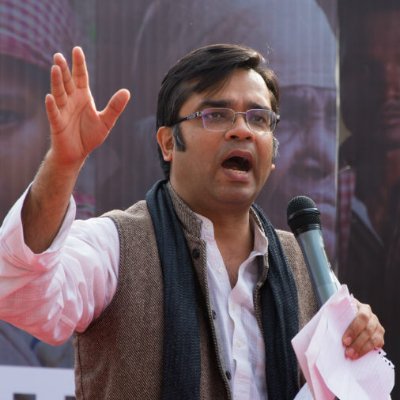Amitabh Behar, Chief Executive Officer of Oxfam India, is a global civil society leader, and an authority on tackling economic and gender inequality and building citizen participation. Mr. Beharwas the Vice Chair of the Board of CIVICUS, a global alliance of civil society organisations and activists dedicated to strengthening citizen action and civil society across the globe. He also serves on the boards of several other organisations, including the Centre for Budget and Governance Accountability, an Indian public policy think tank.
Prior to Oxfam, Mr. Behar was the Executive Director of National Foundation for India and served as the Convener of National Social Watch Coalition and the Co-Chair of Global Call to Action Against Poverty, a network of over 11,000 civil society organisations.
What do you think are the current challenges in the cooperation sector?
INGOs face multiple challenges in current times. However, the deepest challenges are around fundamental questions of relevance, credibility and impact of INGOs.
INGOs were an important part of the post war developmental architecture and played an even more significant role after the collapse of Soviet Union. They provided the normative moral compass to international development along with the real possibilities of reaching the last person and the last mile of (under)development.
These roles are in disarray. A messy picture has emerged where the INGOs have not been able to keep pace with the changes, while undergoing changes in their own functioning. INGOs have compromised, on upholding the normative moral compass by going after scale and size; by replicating the existing power structures of the unequal and unfair economic and political order; by developing hollow rhetoric around deeply political questions of race, decolonisation and neo-liberal capitalism; on ensuring delivery to the last mile and instead have developed their own flab; and by not sincerely challenging power to hold it to account and democratize it from the perspective of the most excluded and marginalised.
How do you consider they should be faced?
A combination of new imagination and going back to the basics is needed. This new imagination needs to visualise development in the current times not as a decontextualized professional and technocratic intervention but as part of the larger socio-economic and political battle for building a just, equal and sustainable future. In these battles, the INGOs need to stand in solidarity and take sides with the most marginalised and disempowered communities. In terms of going back to basics – the INGOs need to, re-recognize that the agency is with the people and they cannot substitute them by speaking for them or representing them; give up the role being an ‘honest’ broker, instead focus on building the power of people; focus on organising and mobilizing people and not get sucked into corridors of power in the name of advocacy and negotiating for the poor and marginalised; not uncritically develop corporate structures and ways of working which are essentially designed for maximising profits, at the cost of a people centred approach; and just walking the talk of values which guide the INGOs.



